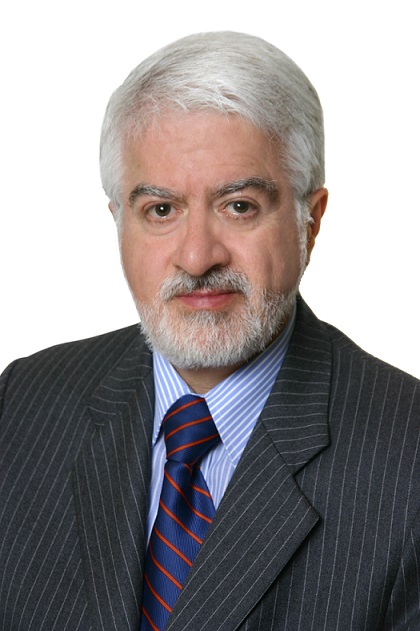On the lighter side of things, we ask Manuel Dávila, Satellital Images Director, Scientific Park of Innovation, Uniminuto, Colombia, what makes him tick.

What would you describe as your most memorable achievement?
There are several: Brought the first microcomputers to Colombia in 1980 focused on software development for companies; Being the founder of the Network of Systems Engineering Programs REDIS; Being co-founder of Indusoft (now Fedesoft) and the Colombian Association of Systems Engineers ACIS. I formed the Uniminuto Virtual Education and all the systems engineering and related programs at this university.
What first made you think of a career in technology?
I studied in a very comprehensive training school (La Salle); In that institution, mathematics, physics, literature, music and philosophy were important. For me, it was natural to think about engineering. I started at Uniandes Electrical Engineering, but they created systems engineering, and I went for this profession after learning about computer programming. I am talking about the years 1967 to 1972.
What style of management philosophy do you employ in your current position?
I look to think and let think freely, not tied only to the ‘best practices’ but to allow innovation. I am currently involved in many committees and technical projects: satellite sciences, Smart Cities, engineering ethics, publication of the Acis magazine, society transformed by technologies, sciences and technologies for life, sentiment analysis using Artificial Intelligence, among others. My management philosophy focuses on technology and society, encouraging innovation beyond traditional technology applications.
What do you think is the current hot technology conversation topic?
Due to technology, the main topics turn around digital ethics, Smart Cities and society’s transformation. I try to talk about technology by mentioning the names of different types of technology and understanding what they are for and their ‘state of the art’ conditions.
People talk about new technologies without depth and knowledge. In my conversations in the academic environment, I speak to understand the issues and their impact on society.
How do you deal with stress and relax outside of the office?
I am living in an exciting moment because the work I do comes from my initiative since I have sought to be allowed to innovate, so stress does not come much from third parties but from my own challenges. Subjects that relax me are listening to classical music, software development, reading classical music scores, free speech committees on several topics such as philosophy, in which I have completed a master’s degree.
If you could go back and change one career decision, what would it be?
I would change a lot of things. For example, I would integrate more philosophy into engineering work. I would be more aware of the importance of other disciplines that I abandoned with the belief that the profession only required engineering knowledge. I would have liked to have studied physics and pure mathematics. I wish I had avoided seeing the profession in a utilitarian rather than a scientific way earlier.
What do you currently identify as the top investment areas in your industry?
I believe that the country has neglected satellite sciences on which I have been working intensely. I have discovered the importance of observing and caring for the earth by applying the technologies that physics offers us, the analysis of the electromagnetic spectrum that requires a great deal of understanding of physics and the mathematics of bands to discover what the satellites reveal to us about the changes of the earth for the good of society.
What are the specific challenges of the region when implementing new technologies?
The main challenge is to break the belief that the country does not have talent, which means that innovation possibilities are given only to multinationals. The lack of research support is seen as something costly and not as something that will create the country’s future development. The country is a consumer, not a developer, and companies see marketing as more important than innovation. Colombian politicians do not see beyond their intentions to seek votes and promote innovation. But the most challenging thing is that they are not prepared to understand the importance of generating knowledge. They prefer to buy it.
What changes have you seen in your job role in the last year, and how do you think they will develop in the next 12 months?
As I already mentioned, I positively believe that time must be committed to innovation, and managers must commit that time to research. In my case, I have been able to verify that by letting this work, productivity is enormous.
What advice would you give someone aspiring to a C-level position in your industry?
One of the problems that IT professionals face is a duality in which a good salesperson is more important for companies than a good technology professional. In the organizational structures of companies, the upper echelons focus on administrative and commercial positions. Good technicians must decide to become administrators and abandon their knowledge-based training to be part of the managerial staff.


